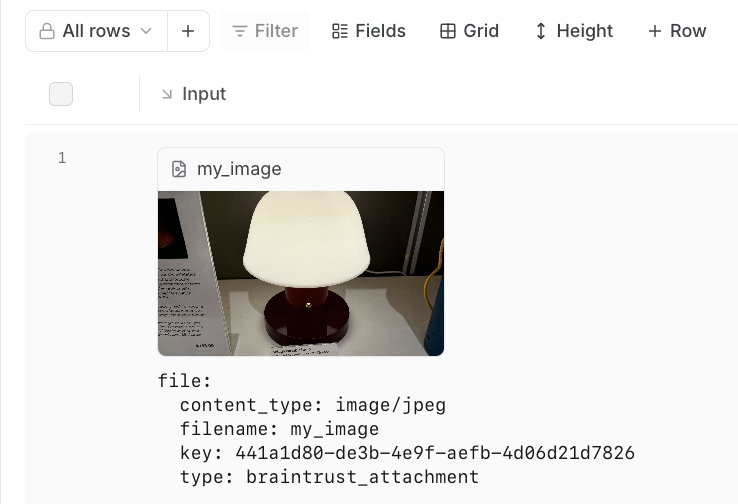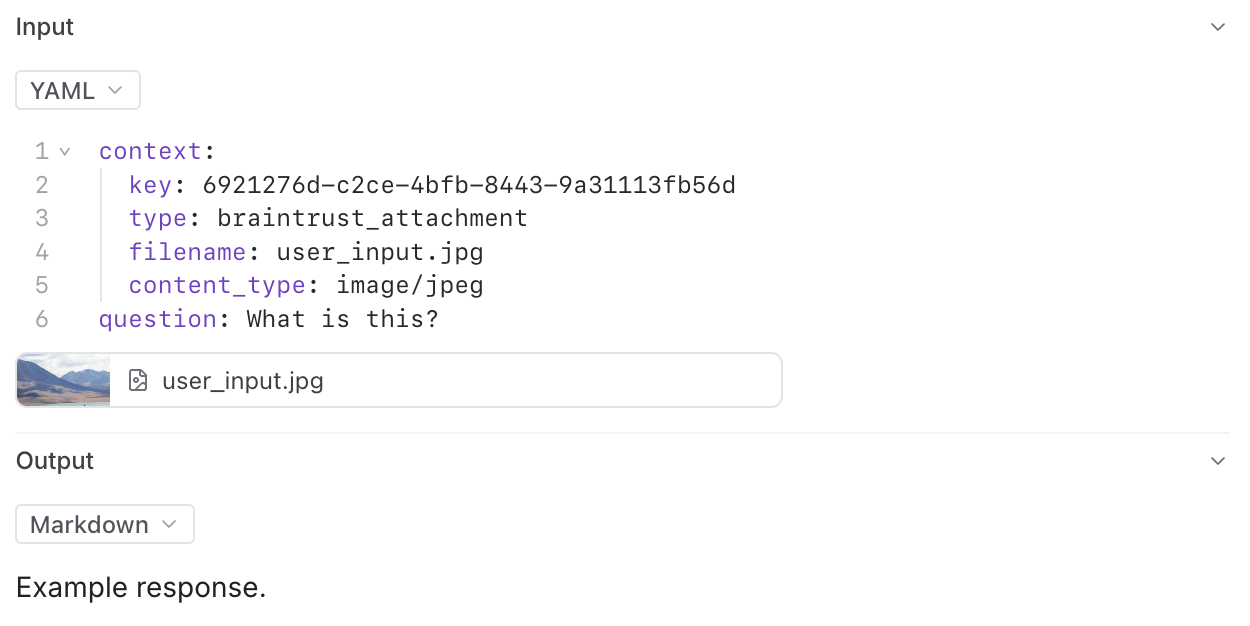Attachments
You can log arbitrary binary data, like images, audio, video, and PDFs, as attachments. Attachments are useful for building multimodal evaluations, and can enable advanced scenarios like summarizing visual content or analyzing document metadata.
Uploading attachments
You can upload attachments from either your code or the UI. Your files are securely stored in an object store and associated with the uploading user’s organization. Only you can access your attachments.
Via code
To upload an attachment, create a new Attachment object to represent the file path or in-memory buffer that you want to upload:
You can place the Attachment anywhere in a log, dataset, or feedback log.
Behind the scenes, the Braintrust SDK automatically detects and uploads attachments in the background, in parallel to the original logs. This ensures that the latency of your logs isn’t affected by any additional processing.
In the UI
You can upload attachments directly through the UI for any editable span field. This includes:
- Any dataset fields, including datasets in playgrounds
- Log span fields
- Experiment span fields
You can also include attachments in prompt messages when using models that support multimodal inputs.
Viewing attachments
You can preview most images, audio files, videos, or PDFs in the Braintrust UI. You can also download any file to view it locally. We provide built-in support to preview attachments directly in playground input cells and traces.
In the playground, you can preview attachments in an inline embedded view for easy visual verification during experimentation:

In the trace pane, attachments appear as an additional list under the data viewer:
